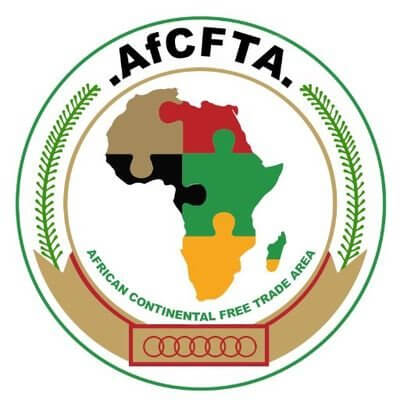
Our Projects are
Transforming African Trade
Quick Contacts
2nd Floor, Fidelity Insurance Centre Waiyaki Way, Westlands

The African Continental Free Trade Area (AfCFTA) represents a historic opportunity to boost intra-regional commerce, reduce poverty, and spur Africa’s economic transformation. The World Bank estimates that AfCFTA could lift over 50 million people out of extreme poverty and raise incomes by nine per cent once fully implemented.
However, realising these gains will require expanding access to financing and investment to energise trade and engage all Africans in the AfCFTA’s success. To achieve this, it is imperative to recognise that countries do not trade; people do. Therefore, there exists an urgent need to create viable avenues for trade financing that can empower individuals, entrepreneurs and businesses across the continent.
The AfCFTA represents a historic opportunity to foster economic integration and create a single market for goods and services across Africa. However, the success of this ambitious initiative relies on the active participation of a multitude of actors, from small and medium enterprises to established businesses, and from rural farmers to urban entrepreneurs. Recognising that these diverse players are the true agents of trade, it becomes evident that facilitating their involvement requires a targeted approach to address the financial barriers they face.
A persistent challenge for African traders is limited access to the affordable financing needed for cross-border transactions and supply chain operations. The trade finance gap for Africa is estimated at over $100 billion annually. Boosting financing from both public and private sources is imperative to enable businesses of all sizes to engage in the AfCFTA. Development finance institutions like the African Development Bank (AfDB) have a vital role to play by providing direct funding, credit guarantees, and technical assistance to local banks to expand trade finance availability.
Trade financing plays a pivotal role in facilitating cross-border transactions, enabling businesses to access the capital needed to engage in international trade. In the context of the AfCFTA, creating effective and accessible avenues for trade financing becomes paramount. Traditional financial institutions like banks are hesitant to extend credit to smaller businesses or those operating in less-developed regions due to perceived risks and challenges.
Hence, there is an urgent need to establish innovative and inclusive trade financing mechanisms that cater to the unique needs of diverse businesses and entrepreneurs. This is where public-private partnerships, development finance institutions, and the burgeoning field of DeFi can play a transformative role. Major priorities are ensuring micro, small and medium enterprises (MSMEs) benefit from the AfCFTA alongside larger firms and supporting the vast informal trader networks that sustain livelihoods across Africa.
Initiatives by the AfCFTA Secretariat, AfDB and Afreximbank to enhance MSME’s access to low-cost trade finance, localised training programmes, e-commerce platforms, and simplified cross-border e-payment solutions can democratise gains more widely.
As advanced financial innovation gathers momentum globally, Africa should embrace cutting-edge decentralised finance (DeFi) models that broaden access. DeFi innovations like peer-to-peer credit networks, tokenisation of trade assets, and blockchain-enabled supply chain financing can unlock new funding streams. Traditional banking systems often struggle to reach underserved or remote communities, leaving a significant portion of the population without access to credit.
DeFi’s networks, such as Uniswap and MakerDAO, can provide an alternative by allowing individuals to directly connect and transact with each other, facilitating the lending and borrowing of funds without the need for intermediaries. This can empower individuals and businesses in regions where traditional banking infrastructure is limited.
By representing real-world assets, such as agricultural products or commodities, as digital tokens on a blockchain, DeFi enables fractional ownership and facilitates efficient trading. This not only enhances liquidity in traditionally illiquid markets but also allows a broader range of investors, including those with smaller capital, to participate in these markets. For Africa, where agriculture and commodity trading play a significant role in many economies, the adoption of tokenization could unlock new opportunities for local businesses to access global markets.
Blockchain-enabled supply chain financing is yet another area where DeFi can make a substantial impact. The fragmented nature of supply chains in Africa often results in inefficiencies and delays in payments. DeFi solutions can streamline this process by utilising smart contracts on a blockchain, automating payment processes based on predefined conditions being met. This not only reduces the risk of fraud but also ensures that funds are allocated more efficiently throughout the supply chain, benefiting both suppliers and buyers.
The AfCFTA Secretariat and other bodies should partner with African DeFi startups pioneering solutions adapted for the continent.
To catalyse the adoption of DeFi in Africa, strategic partnerships are crucial. The AfCFTA Secretariat, along with other regional bodies, should actively collaborate with African DeFi startups that are pioneering solutions tailored to the unique needs and challenges of the continent. These partnerships can help ensure that regulatory frameworks are conducive to the growth of DeFi, fostering an environment where innovation can thrive while protecting the interests of users.
The AfCFTA’s governance architecture must enable transparent and inclusive participation by businesses, workers, consumers, and community groups in trade-related policymaking. E-consultation platforms, surveys, regional forums, and published feedback on stakeholder engagement can institutionalise these channels. This amplifies public oversight and commitment to the AfCFTA. Through multi-stakeholder initiatives embracing both time-tested financing vehicles and disruptive emerging technologies, the institutions and governments supporting the AfCFTA can ensure its gains are broadly shared for maximum poverty reduction and prosperity. Innovative funding coupled with participatory governance will drive an AfCFTA that empowers all Africans.
Read original article
Disclaimer: The views and opinions expressed in this article are those of the authors and do not necessarily reflect the official policy or position of TradeMark Africa.